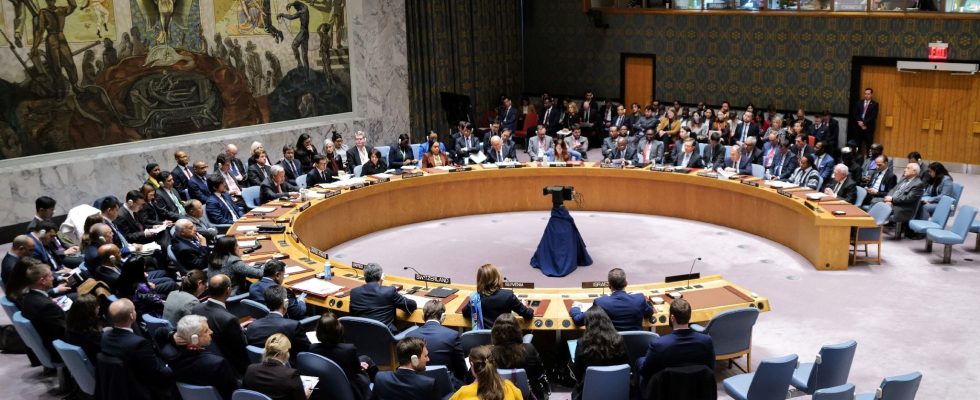Reform the UN? An idea as old as the institution! In October 1947, barely two years after its creation, the American Senate already suggested correcting its dysfunctions. In 2005, Secretary General Kofi Annan proposed “revitalizing the UN”. And Antonio Guterres, in turn, has great ambitions for his Future Summit next September. Sea serpent, the big UN evening is not about to arrive. This does not prevent us from thinking about ways to improve.
Expand the Security Council
In New York, everyone is – almost – in agreement: the Security Council must evolve. Guy Ryder, number 2 of the UN, said it himself to L’Express: “Its composition and its mode of operation are based on the geopolitics of 1945, but this architecture does not reflect the reality of power relations current”. As a reminder, the “P5” has five permanent members and ten non-permanent members, renewed every two years. If France and the United Kingdom are ready to expand the circle (with the entry into the P5 of an African representative, but also of Germany, Brazil, India and Japan), China is there fiercely opposed.
“We must resume the work of enlarging the Security Council. But also, more generally, extending the North-South dialogue to security issues, within the confines of the UN. Currently, we are in an unhealthy situation where the large countries of the South blame the West for the ineffectiveness of crisis resolution, but without taking responsibility themselves. This would allow them to be more involved,” insists former ambassador Michel Duclos, advisor to the Montaigne Institute.
But expanding the club of permanent members of the Security Council is almost a mission impossible, given the institutional and political blockages. “The Security Council is impossible to reform. Why? Because it would require a two-thirds majority in the General Assembly and the agreement of the Security Council itself, asks Bruno Tertrais, deputy director of the Foundation for strategic research. We must therefore live with this extremely imperfect system.”
In fact, “the Security Council is not totally paralyzed, tempers Alexandra Novosseloff, associate researcher at the Thucydides Center (Paris-Panthéon-Assas University). It still adopts around fifty resolutions per year. Nothing to do with the Cold War era!” In reality, the problem is mainly due to the right of veto, used frantically by the Russians and the Americans. Delete it purely and simply, as José Ramos-Horta, president of Timor, suggests to L’Express? Not that easy. “The veto is a safety valve, it keeps the great powers within the system and prevents them from going to war,” believes Alexandra Novosseloff. The solution could be to make it more complicated to exercise. This is the meaning of a decision adopted in April 2022, which stipulates that each member using the veto will now have to justify it within ten days before the General Assembly. Good idea. The only problem is that this resolution is not binding…
Rethinking the global financial system
Taking more into account the interests of emerging countries, crushed by the weight of debt, would allow the great powers – particularly Western ones – to reduce the divide with the “global South”. The UN is aware of this. “We have proposed a range of actions ranging from governance processes within financial institutions to issues relating to liquidity and special drawing rights [NDLR : unité de compte du FMI], relates Guy Ryder. They also address the issue of debt treatment. It is alarming to note that many countries in the developing world spend more on debt service than they devote to health or education budgets.” But here again, there are many blockages.
Strengthen cooperation with regional agencies
It is a fact that is difficult to dispute: UN budgets are insufficient. Hence this idea: rather than deploying forces all over the planet, the UN will strengthen cooperation with regional organizations and particular countries.
This model is already in testing. “In October, illustrates expert Richard Gowan, the Security Council, for example, authorized Kenya to lead a multinational security assistance mission in Haiti.” In Africa, the UN could also finance stabilization missions carried out by local forces, in the hope that they will be more involved than the Blue Helmets in fighting militias: “This very innovative approach will make our operations more more effective peace”, hopes Guy Ryder. And, also, cost less to the United Nations.
.
